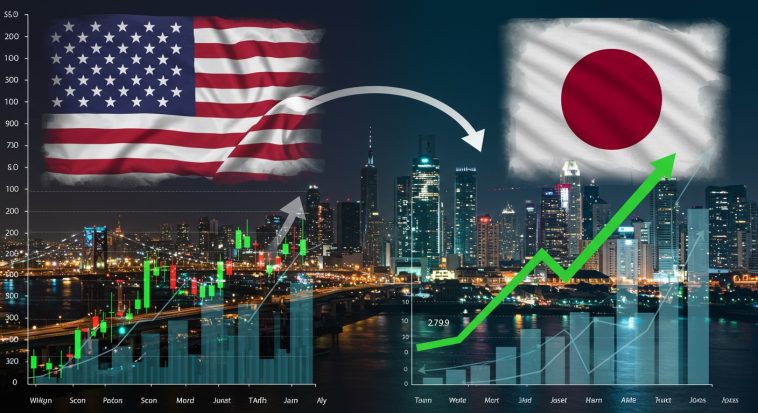US-Japan tariff talks sparked a major stock market rally on Tuesday, with all major indices rebounding strongly after recent losses as investors responded positively to signs the White House may be open to negotiating trade deals. The benchmark S&P 500 (^GSPC) and tech-heavy Nasdaq Composite (^IXIC) both jumped 1.7%, while the Dow Jones Industrial Average (^DJI) gained approximately 2%.
US-Japan Tariff Talks Bring Relief to Markets
The announcement of bilateral US-Japan tariff talks by Treasury Secretary Scott Bessent provided much-needed relief to investors who had been concerned about the Trump administration’s aggressive tariff policies. This positive development regarding US-Japan tariff talks helped major indices recover from Monday’s steep declines, though they retreated somewhat from their intraday peaks during afternoon trading.
Tech giant Nvidia (NVDA) was among the standout performers, rising 4% as the broader market embraced renewed optimism. Earlier in the trading session, the Dow had surged more than 1,300 points before moderating to close with an approximately 800-point gain.
Global Impact of US-Japan Tariff Talks
The positive sentiment surrounding US-Japan tariff talks extended beyond American markets. Japan’s Nikkei 225 (^N225) closed 6% higher in Tokyo, rebounding dramatically from Monday’s plunge to its lowest level in over 18 months. Japanese investors welcomed the indications that the US was open to dialogue and potentially adjusting its tariff strategy.
The news about US-Japan tariff talks helped counter previous concerns raised by trade adviser Peter Navarro’s comment to the Financial Times that Trump’s tariffs were “not a negotiation,” which had initially spooked markets worldwide.
Tensions with China Persist Despite US-Japan Progress
While US-Japan tariff talks provided a bright spot, trade tensions between the United States and China continue to weigh on market sentiment. On Tuesday, China vowed to “fight to the end” if the US follows through on threatened additional 50% tariffs scheduled to begin Wednesday. These tariffs would be implemented if China refuses to abandon its planned retaliatory duties.
The contrasting developments highlight the complex global trade landscape that investors must navigate as the new administration implements its economic policies.
Business Leaders Express Concern
Despite the positive market reaction to US-Japan tariff talks, prominent business leaders have begun voicing concerns about the broader tariff strategy. JPMorgan CEO Jamie Dimon and BlackRock CEO Larry Fink are among those warning about potential negative effects of widespread tariffs on the economy.
Even Tesla CEO Elon Musk, who serves as an adviser to President Trump, has offered mild criticism of certain aspects of the tariff approach in recent days, suggesting there may be internal debate about the optimal path forward.
Investors are now watching closely for any additional signals about US-Japan tariff talks and other potential trade negotiations that might moderate the administration’s aggressive tariff stance and provide stability to global markets.



